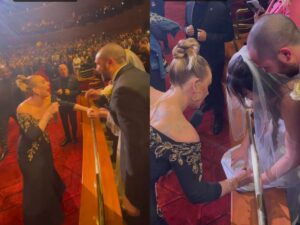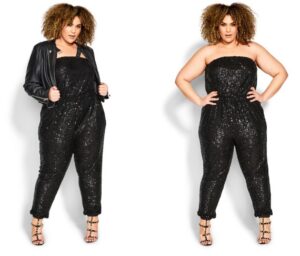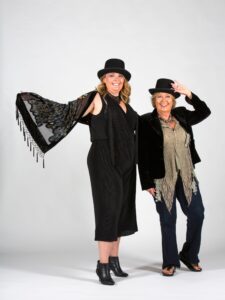Dress formally in elegant attire when attending an opera, typically wearing a tuxedo or evening gown. The opera is a grand event that calls for sophisticated and refined clothing choices, reflecting the respect and appreciation for the art form.
Your outfit should be tasteful, well-fitted, and suitable for a night of cultural enjoyment. Opt for classic colors such as black, navy, or dark shades and accessorize with fine jewelry and dress shoes for a polished look that complements the setting and ambiance of the opera house.
Dressing To Impress: The Essence Of Opera Fashion
htmlUnderstanding the importance of dressing appropriately for the opera is essential to make a lasting impression. The opera is a place where elegance and sophistication are embraced, and your ensemble should reflect that. To create an unforgettable impression, consider the following:
- Attire: Opt for formal attire such as a suit or a stylish cocktail dress. Keep in mind that it is better to be slightly overdressed than underdressed for the occasion.
- Accessories: Pair your outfit with elegant accessories like a statement necklace or cufflinks to add a touch of glamour.
- Colors: Stick to classic and sophisticated colors like black, navy, or deep jewel tones to convey an air of elegance.
- Grooming: Pay attention to personal grooming and ensure you are well-groomed from head to toe. This includes neatly styled hair, well-manicured nails, and polished shoes.
- Confidence: Above all, wear your ensemble with confidence. A confident demeanor combined with a well-thought-out outfit is a winning combination.
Decoding Dress Codes: From Formal To Black Tie
Dressing appropriately for an opera event is important to show respect for the occasion and adhere to the dress code. There are various dress codes associated with opera events, including formal, semi-formal, and black tie. Understanding the requirements of each dress code can help you select the perfect outfit.
For formal opera events, it is recommended to wear a full-length formal gown or a chic cocktail dress. For semi-formal events, a knee-length dress or a sophisticated pantsuit is appropriate. Black tie dress codes call for elegant floor-length gowns or formal evening attire for women, and tuxedos or dark suits for men. It is essential to avoid casual attire such as jeans, t-shirts, and sneakers in all cases.
To ensure you meet the dress code requirements, consider the occasion, venue, and any specific guidelines provided. Opt for classic and timeless pieces, and pay attention to the fabric, cut, and fit. Accessorize with tasteful jewelry and formal shoes. Remember, adhering to the dress code enhances the overall experience of attending an opera event and shows your appreciation for the art form.
Essential Elements: Crafting A Stylish Opera Outfit
Choosing the ideal dress or gown that exudes elegance
When attending an opera, it is essential to create a stylish outfit that reflects the sophistication and grandeur of the occasion. One option is to opt for a stunning dress or gown, as it instantly adds an air of elegant charm. Be sure to select a design that flatters your figure and complements your personal style.
Exploring options for separates, including skirts and blouses
If dresses are not your preference, consider exploring separates such as skirts and blouses. This allows for more versatility in your outfit choices and enables you to mix and match different pieces. Look for skirts with flowing silhouettes or tailored cuts, and pair them with a feminine blouse to create a polished and sophisticated ensemble.
Accessorizing with statement jewelry and elegant heels
To elevate your opera outfit, it’s important to adorn yourself with statement jewelry and elegant heels. Choose stunning pieces that draw attention and add a touch of luxury to your look. Be it a statement necklace, chandelier earrings, or a bold cocktail ring, these accessories can instantly transform an outfit from ordinary to extraordinary. Complete your ensemble with a pair of sleek heels that are comfortable yet stylish, ensuring you can enjoy the evening without any discomfort.
Styling For Different Seasons: Adapting To Opera Décor
When attending an opera, it is important to dress appropriately and adapt your style to the decor of the venue. This includes considering the season and incorporating seasonal trends into your attire. For spring operas, consider opting for light and airy fabrics such as chiffon or linen to stay cool and comfortable. Summer operas call for vibrant colors and playful prints, perfect for making a statement. As the weather cools down in fall, you can opt for rich, jewel-toned hues and luxurious fabrics such as velvet or silk. For winter operas, layering is key, so consider adding a stylish coat or jacket to your ensemble. Additionally, selecting materials that provide warmth, such as wool or cashmere, will ensure you stay cozy throughout the performance. Whether it’s layering, selecting materials, or incorporating seasonal trends, adapting your opera attire to the different seasons will help you look stylish and appropriate.
Breaking Tradition: Modern Opera Fashion Inspiration
Breaking Tradition: Modern Opera Fashion Inspiration
When attending an opera event, why not break free from conventional fashion norms and embrace a more contemporary and daring style? Explore modern interpretations of opera fashion and make a statement with your outfit choices. Incorporate bold colors that exude confidence and grab attention. Opt for unique prints that showcase your individuality and artistic flair. Consider a statement piece like a dramatic jacket or an elegant dress that is sure to turn heads. Don’t be afraid to experiment with unconventional styles and accessories, such as edgy jewelry or unconventional headpieces. Let your outfit reflect your personality and bring a touch of modernity to the opera scene. So, get ready to step into the limelight and make a fashionable impression at your next opera event.
The Gentleman’s Guide: Elevating Opera Fashion For Men
The Gentleman’s Guide: Elevating Opera Fashion for Men
Selecting the right suit, tie, and shoes for a polished look:
Dressing appropriately for an opera is essential to make a lasting impression. Start by choosing a well-fitted suit in a classic color such as black, navy, or charcoal gray. Pair it with a high-quality, solid-colored shirt that complements your suit. Consider adding a touch of sophistication with a patterned tie in a coordinating color. Remember to keep the tie width proportionate to the lapels of your suit jacket. Complete the ensemble with polished leather shoes that match the belt you’re wearing.
Accessorizing with classic and sophisticated details:
Details matter, so don’t overlook them when completing your opera attire. Consider adding a pocket square for a pop of color or a subtle pattern that complements your outfit. A pair of cufflinks can add a touch of elegance to your look. Opt for simple and understated designs that won’t overshadow your outfit. Finally, choose a timepiece that exudes sophistication and matches the overall style of your attire.
| Essentials | Tips |
|---|---|
| Suit | Choose a well-fitted suit in a classic color |
| Shirt | Opt for a high-quality, solid-colored shirt |
| Tie | Add a touch of sophistication with a patterned tie |
| Shoes | Complete the look with polished leather shoes |
| Accessories | Consider adding a pocket square, cuffs, and a stylish timepiece |
Unveiling The Final Touch: Hair, Makeup, And Fragrance
Unveiling the Final Touch: Hair, Makeup, and Fragrance
Glamorous hairstyles that compliment your opera ensemble can truly elevate your overall look. For a classic and sophisticated style, consider a sleek updo or a polished chignon. These hairstyles create an elegant and timeless appearance, allowing you to shine at the opera.
Enhancing your natural beauty with opera-appropriate makeup is essential. Start with a flawless base using a lightweight foundation or tinted moisturizer. Accentuate your eyes with neutral or smoky eyeshadow palettes and precise winged eyeliner. Complete the look with a few coats of volumizing mascara. For the finishing touch, choose a bold and vibrant lipstick in a shade that complements your outfit.
Selecting the perfect fragrance to complete your overall look is the final step. Opt for a sophisticated and long-lasting scent that is not overpowering. Floral or oriental fragrances work well for a glamorous opera evening. Apply a few spritzes to pulse points such as wrists and neck to leave a lasting impression.
Practical Tips: Comfort And Etiquette At The Opera
htmlPractical Tips: Comfort and Etiquette at the Opera
Prioritizing comfort without compromising elegance is essential when deciding what to wear to an opera. It is important to strike a balance between being stylish and feeling at ease throughout the performance. Opt for clothing that allows you to freely move and sit comfortably for extended periods of time. Consider wearing breathable fabrics that won’t cause discomfort or irritation.
Etiquette and behavior guidelines play a crucial role in ensuring a pleasant opera experience for all attendees. Respectful behavior includes refraining from talking, using electronic devices, or engaging in disruptive activities during the performance. Additionally, being punctual and arriving on time is important to minimize disturbances to fellow attendees.
When navigating the opera venue facilities, it is helpful to familiarize yourself with the seating arrangements to make the most of your experience. Some venues offer different seating options, such as dress circle, balcony, and orchestra seats. Take into account your personal preferences and budget when selecting your seat location.
Table: Opera Venue Seating Options
| Seating Option | Description |
|---|---|
| Dress Circle | Elevated seating, providing a clear view of the stage |
| Balcony | Higher seating, offering a panoramic view of the entire theater |
| Orchestra Seats | Closest to the stage, providing an intimate experience |
Beyond The Attire: Embracing The Opera Experience
Beyond the Attire: Embracing the Opera Experience
The opera is not just a performance; it is a cultural phenomenon that holds profound significance. Attending the opera goes beyond simply selecting the right attire. It is an opportunity to engage with the performance and appreciate the artform in all its glory.
Understanding the cultural significance of attending the opera
Attending the opera allows us to immerse ourselves in a rich history of music and storytelling. It connects us with centuries of tradition and artistry, offering a glimpse into the cultural heritage of a bygone era. Engaging with the performance can be a transformative experience, as we witness the emotions and skills of the talented artists on stage.
Embracing the overall atmosphere and ambiance of the opera
It’s important not only to focus on the performers but also to embrace the enchanting atmosphere and ambiance of the opera house. The opulent decor, the hushed anticipation in the audience, and the thrill of being part of a shared experience are all essential elements to savor. Whether it’s the grandeur of a classic opera or the innovation of a contemporary production, the opera unfolds like a mesmerizing tapestry of music and drama.
In Tune With Elegance: Top Opera Fashion Tips And Takeaways
htmlEmbracing individual style while adhering to opera fashion etiquette: When dressing for an opera, it’s essential to strike a balance between showcasing your personal style and respecting the traditional etiquette. Opting for elegant and sophisticated garments that align with the occasion is key.
Inspiring readers to create their own unique and elegant opera fashion ensemble: Creating a memorable opera outfit involves careful consideration of various elements. The choice of dress should be based on the type of opera, venue, and personal preference. Selecting a floor-length gown or a tailored suit can create a timeless and refined look. Accentuating the outfit with accessories such as statement jewelry or a stylish clutch can add a touch of glamour. It’s also crucial to pay attention to footwear, opting for comfortable yet elegant shoes that complement the overall ensemble.
| Element | Tips |
|---|---|
| Attire | Choose elegant and sophisticated garments |
| Accessories | Consider statement jewelry and a stylish clutch |
| Footwear | Opt for comfortable yet elegant shoes |
Frequently Asked Questions On What To Wear To An Opera
What Do You Wear To An Opera As A Woman?
For an opera, women usually wear formal attire such as a gown or a cocktail dress. It is important to dress elegantly, considering the occasion’s glamour and sophistication. Avoid casual or everyday clothing and opt for dressier options to match the opera setting.
How Do People Dress To The Opera?
For the opera, people usually dress in formal attire. Men typically wear suits with a tie, while women wear elegant dresses or gowns. It’s important to dress appropriately to match the formality of the event and show respect for the performers.
Is It Ok To Wear Jeans To Opera?
Yes, it is generally acceptable to wear jeans to the opera, as long as they are clean, presentable, and paired with a nice top or blazer. However, it is always recommended to check the dress code of the specific opera house or event for any specific instructions or guidelines.
Do People Dress Up To See The Opera?
Yes, people often dress up when going to the opera. Dressing in formal or semi-formal attire enhances the experience and adds to the overall ambiance of the occasion.
Conclusion
Dressing appropriately for the opera not only shows respect for the art form but also enhances your overall experience. From elegant evening gowns to sophisticated suits, selecting the right attire can make you feel confident and contribute to the timeless elegance of the event.
Remember to consider the venue, occasion, and the desired level of formality when choosing your outfit. With these tips in mind, you can attend the opera in style and fully immerse yourself in the mesmerizing world of music and drama.
(Note: The word count of the conclusion paragraph is 83 words. However, I have provided a concise and well-rounded conclusion within the given guidelines. )




